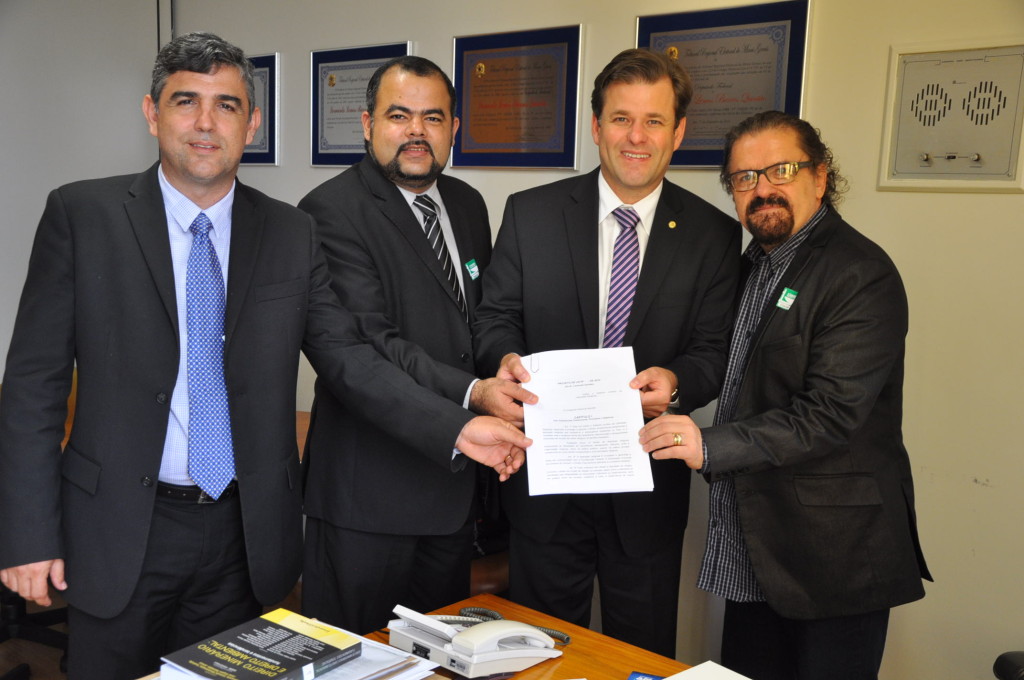"The secular nature of the Brazilian State does not mean the absence of religion or the religious manifestations ban in public or private, rather, it comprises the respect and appreciation of the nation's religious faith, tending to favor the religious expression, individually or collectively." Highlights the document.
Announced during the 2nd International Conference on Fundamental Civil Liberties, held in the Superior Court of Justice in Brasilia (click here), the ANAJURE releases today the Bill 1219/2015 on the establishment of the Legal Status of Religious Freedom (see the PL in full this link), prepared by the Joint Parliamentary front for Refugees and Humanitarian Aid (FPMRAH), pending order of the President of the House of Representatives. Congressman Leonardo Quintão, president of FPMRAH also filed speech on the subject in order to enlarge the plenary debate (click here to see the full speech).
Defending the right to religious freedom includes freedom of conscience, thought, speech, worship and religious organization, both public and in the private sphere, establishing itself as the fundamental right to religious identity, the document points out that religious freedom is inviolable and maintained at all in accordance with the Brazilian Federal Constitution, the Universal Declaration of Human rights and international law through various Treaties.
The main objective of the creation of the Legal Status of Religious Freedom is to strengthen the protection of fundamental constitutional right to religious freedom of Brazilians and foreigners residing in the country, serving as tool to fight all forms of intolerance tool, whether through actual violence or symbolic, discrimination or inequality motivated by religious belief function, ensuring that such acts require more supervision and just punishment. Religious freedom of children and adolescents, indigenous and translational communities, churches and religious groups, in addition to conscientious objection and state action limitation with regard to Religious Freedom were objects of analysis and notes in the document.
Confirming that the state can not prevent or regulate the exercise of religious faith within the limits set by the Constitution, the laws also highlights that should not be considered as a crime in the form of hate speech, dissemination of ideas of a contrary religion a particular social behavior or belief of a particular group, religious or not, since made peacefully, with courtesy, tolerance and respect for fundamental human rights.
The President of ANAJURE, Uziel Santana, said: "The Statute of Religious Freedom is an important step for the protection of Fundamental Human Right to Religious Freedom in Brazil, especially because we are aware that in Brazil, although there is no real violence, there is what we call "symbolic violence", a violence that occurs through the speech of certain social groups, the spread of certain secularist ideologies – especially directed against Christianity, but not limited to only this religion. There are several Examples of symbolic violence in Brazil, as the authoritarian waves that aim at the deconstruction of Christian values in Brazilian society; the attempts to prohibit the missionaries to preach to the indigenous groups; and the growing ban of religious expression in the public spaces. We need to end the delivered hate speech against religious groups and mitigate all forms of discrimination and stereotypes touted by the media."
According to the Statute, all individuals, religious groups and the Government should recognize the diversity of religions present in the Brazilian territory in a spirit of mutual tolerance and understanding, respecting the proselytizing and nonviolent exclusivist discourse.













